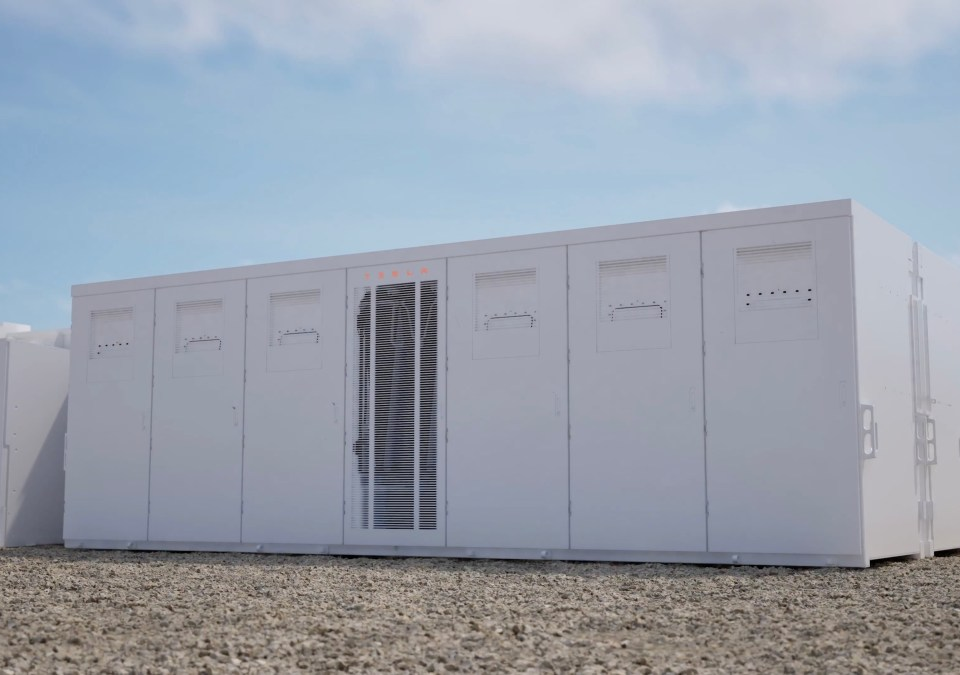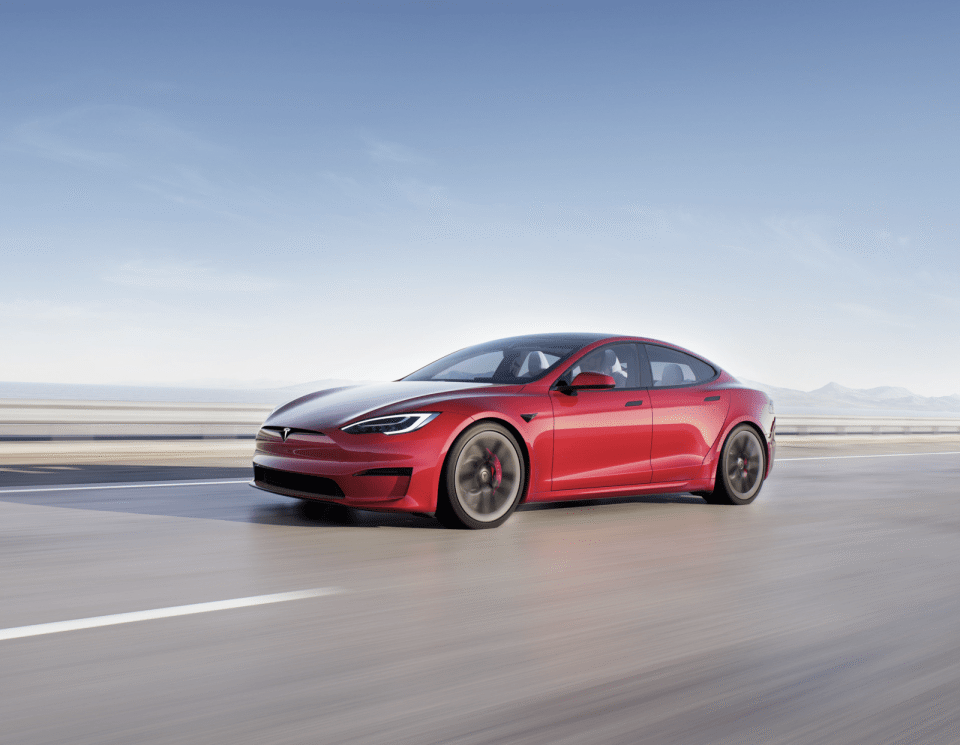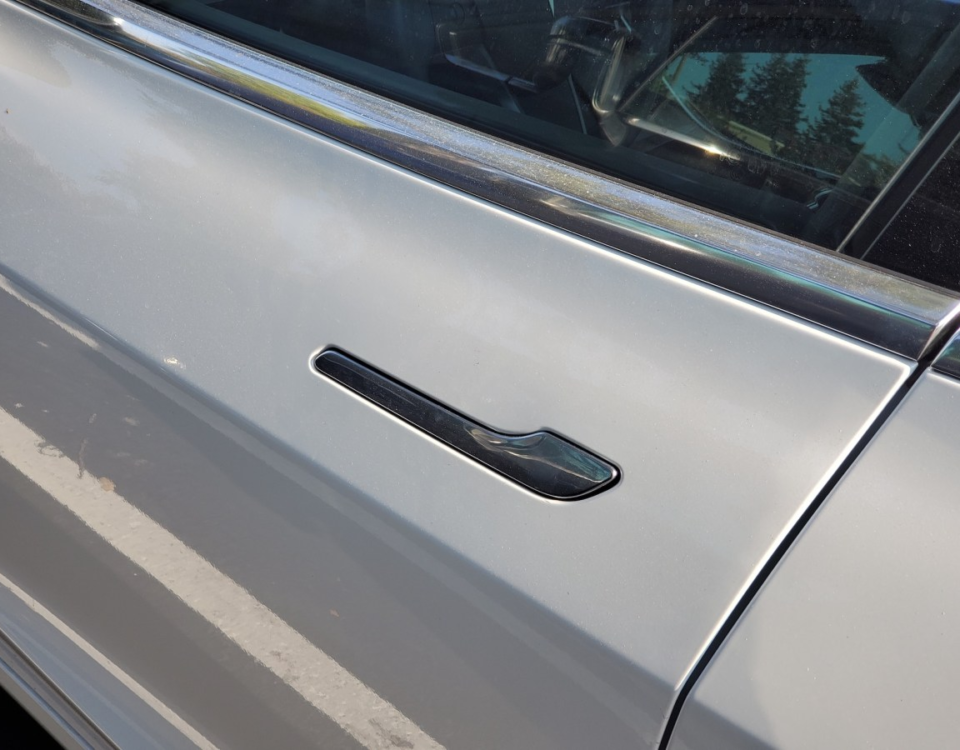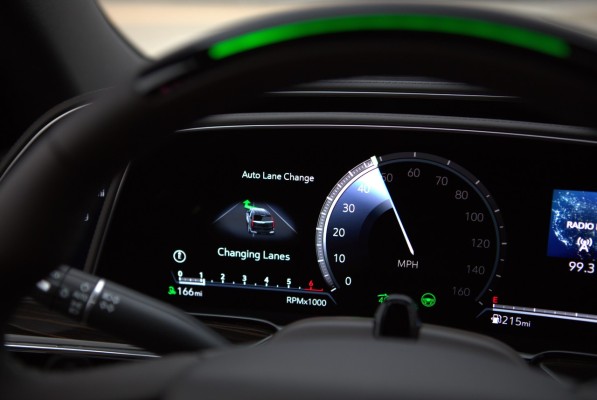
GM is expanding its hands-free Super Cruise system to 400,000 miles of roads
August 3, 2022
European EV rental startup UFODrive launches in San Francisco
August 5, 2022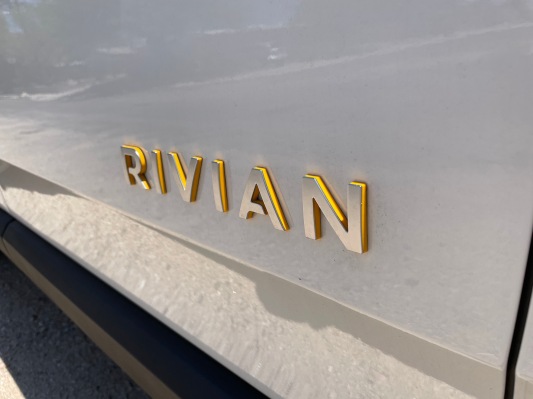
The Station is a weekly newsletter dedicated to all things transportation. Sign up here — just click The Station — to receive it every weekend in your inbox.
Welcome back to The Station, your central hub for all past, present and future means of moving people and packages from Point A to Point B.
Listen up founders! In a few months, TC Disrupt will kick off at the Moscone Center in San Francisco. This annual flagship event, in which hundreds of founders have pitched their startups on our stage, is back in person. So, here is a chance to participate.
Startup Battlefield 200 applications are closing soon. Apply today to join Startup Battlefield 200 for the chance to exhibit your startup for free at TechCrunch Disrupt this October and win the $100,000 equity-free prize. Applications close August 5. Apply today.
Next week, Rebecca Bellan will be taking over the whole newsletter show. Give her some love — aka tips and suggestions — by sending an email to [email protected].
You also can email me at [email protected] to share thoughts, criticisms, opinions or tips. You also can send a direct message to @kirstenkorosec.
Micromobbin’

Supply chain constraints are not just hitting the automotive world. Micromobility is feeling the pain as well.
I reached out to about 20 companies building electric scooters and bikes, and most of them told me the same thing: Getting critical parts, like motors, out of China is becoming increasingly difficult, and Russia’s war against Ukraine is making supplies like nickel expensive and hard to source. The result? More companies are trying to get at least final assembly as close to the end consumer as possible.
Watch this space. We might begin to see new factories cropping up in Europe and North America, which will empower some economies even as others suffer.
In other news…
Arcimoto unveiled an electric tilting e-trike, which it calls the Cybertrike edition of its Mean Lean Machine.
Dott brought in €32 million in 2021, with about 19 million rides in 29 cities.
HumanForest did a marketing thing with dating app Bumble that was actually kind of cute. It gave people on Bumble access to 30 minutes of free riding to encourage people to try an active, outdoor date.
TC’s very own Haje Jan Kamps tried out a prototype of the Nimbus three-wheeled, mini-EV. While it was a rickety little thing that is clearly not at all ready for public use, the vehicle has real gumption, and Haje, like me, really wants to love it. Fingers crossed this company pulls off its final design when the time comes.
Okai is launching a new fat-tire, off-road e-bike that can ride for 45 miles on dirt or road.
Shell is making e-scooters and battery banks, I guess. Yes, Shell, the gas company that has helped us pollute the universe for over a century.
Tier has introduced e-bikes to Ealing, in London, adding on to its existing e-scooter trial there. First-time riders can get two free unlocks and 20 minutes of free riding using the code “EALINGTIER” on the app.
A few words on bike lanes…
A new study shows bike lanes increase sales of local businesses because they make the streets safer places for pedestrians, which increases foot traffic, so THERE! Shop owners should stop complaining to their local transportation authorities when parking spots get repurposed for bike lanes. The end.
Rutgers University researchers are using VR to help determine the feasibility of pop-up bike lanes in New Jersey.
Meanwhile in New York City, a bill is being considered to install bike lane cameras to catch when drivers park in the bike lane and fine them $50. We love to see tech helping bikers stay safe.
— Rebecca Bellan
A little bird

We hear things and we share the tidbits that we can verify.
We’ve been hearing rumblings for awhile that not all is right over at Helbiz, including that it was late paying employees in at least two offices — one in the U.S. and one in Serbia. The late U.S. payment was only about four days late, but Serbian workers were waiting on June pay until the second week of July.
This wasn’t the first time Helbiz was late to pay employees. In early April, the operator missed payroll for U.S. employees, blaming a software glitch. A former employee told us Helbiz also missed payroll in Serbia in December 2020, with employees not seeing a check until February 2021.
It seems the issues extend beyond late paychecks. Sources tell us that scooter supply shipments are also chronically late and complain the company is unstructured, causing issues throughout the organization.
It’s certainly troubling, especially given the company’s plan to acquire another U.S.-based scooter operator, Wheels. If you recall from last week, we reported that Wheels employees are being furloughed. Back in late May/early June, Wheels furloughed “at least 10 people” according to one source.
— Rebecca Bellan
Deal of the week

After lots of back and forth, the JetBlue-Spirit Airlines deal actually happened.
The respective boards at JetBlue Airways and Spirit Airlines approved a merger agreement at a diluted equity valuation of $3.8 billion. JetBlue will acquire Spirit for $33.50 per share in cash, including a prepayment of $2.50 per share in cash payable upon Spirit stockholders’ approval of the transaction.
The deal faces scrutiny from the Justice Department. But if it closes, it will create the fifth largest airline in the United States.
Other deals this week…
Drover AI, the startup that really popularized using camera-based computer vision systems to stop scooter riders from riding all over the sidewalk, has closed a $5.4 million Series A.
Everrati, EV conversion startup, has landed an investment from former Nest CEO Matt Rogers, the Verge reported.
General Motors sold $2.25 billion worth of green bonds — at first for the automaker, Bloomberg reported.
Koenigsegg, the hypercar company, invested as undisclosed amount into Lightyear, the Netherlands-based startup developing a solar vehicle that is expected to go into production this fall.
Next.e.GO Mobile, the German manufacturer of compact EVs, is going public through a merger with blank-check company Athena Consumer Acquisition Company at $913 million valuation that includes debt.
Polymath Robotics, a new startup that came out of stealth and is part of the Y Combinator Summer 2022 cohort, has landed a number of high-profile angel investors, including Catapult Ventures managing director Darren Liccardo, Thursday Ventures general partner Matt Sweeney, Cruise co-founder and CEO Kyle Vogt and Oliver Cameron, the former co-founder and CEO of Voyage who is now at Cruise. (Polymath didn’t disclose the total amount of funding). Stefan Seltz-Axmacher, co-founder and CEO of Polymath, is familiar to the AV industry ecosystem. He previously co-founded and led the now shuttered Starsky Robotics.
Notable reads and other tidbits
Autonomous vehicles
Cruise has sent two of its autonomous Chevrolet Bolt electric vehicles to Dubai to begin mapping the city in preparation for a planned launch in 2023, according to Dubai’s Roads and Transport Authority.
Kodiak Robotics completed a commercial run between Texas, California and Florida for 10 Roads Express, as part of a pilot program with the USPS mail carrier.
Electric vehicles & batteries
Apple has hired Luigi Taraborrelli, a 20-year veteran of supercar maker Lamborghini, to work on the tech company’s not-so-secret electric autonomous vehicle program, Bloomberg reported.
Ars Technica released a guide to EV charging.
Bentley Motors has delayed its first EV.
General Motors launched a program and digital platform called EV Live to educate car shoppers about EVs and target first-time buyers, as the automaker searches for ways to catch up to and outpace rival Tesla.
Faraday Future is faltering — again. The company said in a regulatory filing that it has delayed production of its FF91 flagship electric vehicle due to lack of money and supply chain issues.
Rivian started laying off about 6% of its workforce (about 900 people) as part of a restructuring plan, according to an internal email from founder and CEO RJ Scaringe (and viewed by TechCrunch). The layoffs are hitting every department, with one major exception — manufacturing operations at its Normal, Illinois factory.
Sono Motors’ solar EV is finally here! Well, sort of; there’s the sticky business of production to contend with. The startup unveiled the final production design of the vehicle as well as a solar bus kit, a new product that is a series of solar panels designed to be retrofitted onto 12-meter public buses.
TechCrunch’s Tim De Chant takes a deep dive into the 725-page Manchin-Schumer bill, which includes some EV transportation spending. He also wrote up another TC+ (subscription) article examining whether VW’s new CEO will hamstring its EV push.
U.S. Department of Energy revived an old loan program and its first recipient is the joint battery venture between GM and LG Energy Solution, which received a $2.5 billion loan from the agency to help it finance the construction of new lithium-ion battery cell manufacturing facilities.
Ford released the law enforcement version of its all-electric F-150 Lightning truck.
Earnings
The big three U.S. automakers reported earnings this week and the big themes that repeatedly came up were inflation, supply chain issues, China and EVs.
General Motors kicked things off with a rather dismal Q2 report that saw profits fall 40% year over year to $1.69 billion. The culprit? GM blamed its weak performance on a drop in North American production due to supply chain disruptions and semiconductor chip shortages that caused bottlenecks at its factories. And let’s not forget the pandemic-related factory shutdowns in China.
Another tidbit: GM’s self-driving subsidiary Cruise is burning through cash, with expenses hitting around $550 million compared to $332 million during the same quarter of last year. Operating losses topped $605 million, up from $363 million last year. The increase in cost can be attributed to a headcount increase from revving up Cruise’s robotaxi service, as well as a change in the compensation expense, according to CEO Kyle Vogt.
Ford also saw losses in China, but gains in other regions helped the automaker bring in $40.2 billion in revenue, a 50% increase from the same period last year and an adjusted operating income that tripled to $3.7 billion.
Spotify announced during its second-quarter earnings call that it has stopped manufacturing “Car Thing,” the company’s in-vehicle device for controlling music.
Future of flight
Urban Movement Labs in Los Angeles is partnering with South Korea’s Institute of Aerospace Industry-Academia Collaboration (IAIAC) to explore research opportunities around air mobility planning and integration. IAIAC is working to integrate advanced air mobility within the Incheon metro region.
People
Bosch is reorganizing its Mobility Solutions business sector, which will now be headed up by Markus Heyn.
Hyundai Motor North America promoted Randy Parker to be CEO of Hyundai Motor America effective August 1.
Lyten, an advanced materials company developing lithium-sulfur batteries and other high-performance product, hired Celina Mikolajczak as chief battery technology officer.
Ride-hailing
Uber is expanding its “Comfort Electric” product, which is basically just all-electric Uber rides, to seven additional cities, including Las Vegas, Seattle, Portland, Denver, Austin, Philly and Baltimore. Uber originally launched the luxurious EV service in May in San Francisco, San Diego and Los Angeles.
Also in Uber news, the ride-hail giant apparently does not have to provide a wheelchair-accessible service in every market, a judge rules. This just a week or so after Uber settled a lawsuit from the DOJ for allegedly overcharging disabled riders.


